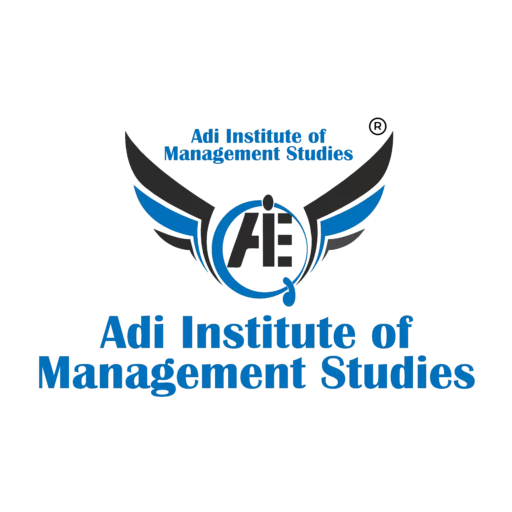Do you still need clarification about which course makes you fit for the industry? Nowadays, job-oriented courses are cracking the majority of the job market. Building a successful career after graduation takes a lot of work. Every student is looking for a degree after the 12th and needs help finding employment. The recruiting team wants applicants who can function well in that position, which is the cause of this issue. A graduation degree doesn’t give specialized skills and causes one to prepare for the job and industry. The job market is very competitive, and companies are searching for talents with specialized skills that align with the job role. That’s why there is a high demand for short-term job-oriented classes where students can gain what they need for a job and study at their convenience, online or offline.
What is a job-oriented course?
Before exploring the top job-oriented courses, let’s discuss what a job-oriented course is. A job-oriented or career-oriented course focuses on practical skill training, industry knowledge, soft skill training, and internships that ensure the students are capable of the job role with a high salary. Simply put, a job-oriented course is a specialized training program for a specific career to prepare students for the job role. The courses are designed to equip students with the specialized talents businesses seek in candidates. If you are interested in targeted learning and looking for a quick entry into the workforce, a job-oriented course will help you gain better job prospects.
What are the benefits of job-oriented courses?
- specialized skills align with the job role
- Hands-on training sessions
- Higher salary prospects
- Real-world industry knowledge
- Higher demand in the job market
- Short-term duration
- Affordable
Job-oriented Management courses after 12th grade and graduation
- Diploma or PG Diploma in Logistics & Supply Chain Management
Logistics and supply chain management is a high-demanding field and a continuously growing industry with increasing job opportunities. What is logistics? The movement of products and services from the point of manufacture to the point of consumption, including the procurement of raw materials and the delivery of finished goods to customers, is referred to as logistics. Every business firm needs to ensure their products and services are available to consumers whenever they want them without compromising the quality or quantity. Many institutions in Kerala provide diploma and post-diploma courses in logistics supply chain management that cover material handling, supply chain management, warehousing, packaging, transportation, and inventory management. Practical experience, career opportunities, skills and knowledge, an industry-friendly curriculum, projects, and internships are the benefits of the trending course in logistics and supply chain management.
Duration: 6–12 months
Eligibility: Any Graduation
Logistics Job roles: supply chain manager, logistics coordinator, inventory analyst, logistics coordinator, warehouse manager, and transportation manager.

- Diploma in Hospital Administration
A diploma course in hospital administration prepares for management roles in the constantly growing healthcare sector. After completing the course, students will be capable of managing and coordinating the day-to-day operations in a hospital. The course is a better option for both science and non-science background students to get a career in the healthcare industry worldwide. This hospital administration course equips with the skills needed to manage and organize the daily operations of hospitals. The tasks include managing finances, providing high-quality care assistance to patients, and coordinating the staff and the entire hospital. The course covers healthcare management, medical ethics and laws, hospital financial management, healthcare information systems, human resource management, operations management, and quality assurance in healthcare. If you are interested and passionate about building a career in the management field of the healthcare industry, hospital administration is the best option.
Duration: 6–12 months
Eligibility: 12th or Graduation in any stream
Hospital Administration Job Roles: Hospital Administrator, Finance Manager, HR Manager, Finance Manager, Patient Service Manager, Operations Manager.
- Diploma courses in accounting & Office management
A 6-month diploma course in Accounts and Office Management provides skills and practical knowledge in accounting and office management. An accounting and office management professional can work in industries that include income tax departments, MNCs, and Government. Both accounting and office management are integral parts of every organization’s ability to run a business successfully. Every firm has to engage qualified accounting and management specialists to handle financial and administrative tasks efficiently. This program equips one to handle accounts, administrative tasks, monetary analysis, financial records, profit and loss analysis, and financial management. An accounting and office management course covers Financial Accounting, Auditing, taxation, computerized accounting systems, office administration, payroll management, IT Skills, etc.
Duration: 2–6 months
Eligibility: 12th/Degree
Accounting Job roles: Accountant, Auditor, Financial manager, Accounts manager, instructor, etc.
The best job-oriented mechanical courses
- Diploma in Oil & Gas Technology
The oil and gas course is the best career option for job seekers in the Oil and gas industry. There is a high demand for skilled professionals in the oil and gas industry for rigging technology, refining and mining sections, health, safety, and environment (HSE), project management, quality control, and inspection. One of the major attractions of a 6-month diploma course in oil and gas technology is a high-paying career. This course offers a foundation in the technical and operational aspects of the oil and gas industry. The course covers different topics, such as petroleum geology, drilling engineering, production technology, petroleum economics, petrochemical engineering, health, safety, and environment (HSE), pipeline and transport, and reservoir management. Oil and gas technology comprises the production, extraction, exploration, and management of oil and gas resources using specialized technology and equipment.
Duration: 6 months
Eligibility: +2/Graduation
Oil and Gas job roles: Petroleum Engineer, HSE officer, Project manager, Drilling Engineer, well testing operator, Rig manager, terminal operator, pipeline engineer, etc.
- QA/QC Course
A 3-month course in QA/QC ( Quality Assurance and Quality Control ) offers training in maintaining the quality of products and services across various industries, including aerospace, Oil and Gas, petrochemicals, refineries, Power plants, automobiles, Civil construction projects, etc. Quality Assurance (QA) ensures quality products and services without defects during the development process by setting up procedures and standards. Finding damages through testing and inspecting goods and services and correcting them is known as quality control or QC. A QA/QC course covers quality management systems, inspecting and testing methods, standards and regulations, quality auditing, statistical process control (SPC), route cause analysis, documentation, and reporting. A fresh engineer should gain specialized knowledge and compete with the latest job market trends, for those QA and QC courses work better.
Duration : 3 months
Eligibility: Plus two or a degree
QA QC Job Roles: Quality Assurance Engineer, Quality Control Inspector, QA QC Manager, Quality Supervisor, Compliance Officer, etc.
- MEP ( Mechanical, Electrical and Plumbing ) Course
MEP courses are the best option for mechanical and electrical stream students and will help them gain a career in MEP design. MEP stands for mechanical, electrical, and plumbing. The mechanical area covers heating, ventilation, and air conditioning. Electrical areas include electrical systems, lighting, and electrical systems. Plumbing involves water supply, drainage, and piping systems. Overall, this course is essential for maintaining proper indoor infrastructure, providing utilities, and ensuring safety. Training in the design, installation, and maintenance of mechanical, electrical, and plumbing systems is offered in a short-term MEP skill-up course. An MEP engineer is responsible for planning, designing, and organizing the MEP system of a building. Every building and industrial project needs a qualified MEP designer, so the demand for skilled professionals is high. MEP is the best field for mechanical engineers looking to enhance their skills.
Duration : 3 months
Eligibility: 12th grade or graduation, ITI diploma
MEP job roles: Electrical Engineer, Plumbing Engineer, MEP Designer, MEP Engineer, HVAC Engineer, Building Service Engineer.
How to choose the best course?
- Certification: Try to choose courses offered with international certifications
- Institution: Choose reputed and ISO-certified institutions
- Faculty: Choose an institution providing training by industry expert
- Feedback & Reviews: Seek feedback and reviews from pass-out students
- Placement: Choose institutions with attractive placement record
- Internships: Opt for courses with a 1-2 month internship
- Industry Demand: Research the industry demand for the field you are opting for
- Curriculum: Check the curriculum to adapt to the latest technology and trends
Conclusion
Job-oriented courses break the distance between education and real-world application. There is a high demand for practically trained professionals rather than a theoretically filled graduation or master’s. Most students pursue education in specialized courses that align with their job roles. Practical skills and knowledge make professionals fit for a job role. One thing to consider is that the job market is dynamic and that developing new skills and knowledge is essential to a successful career.


